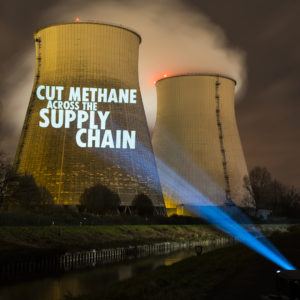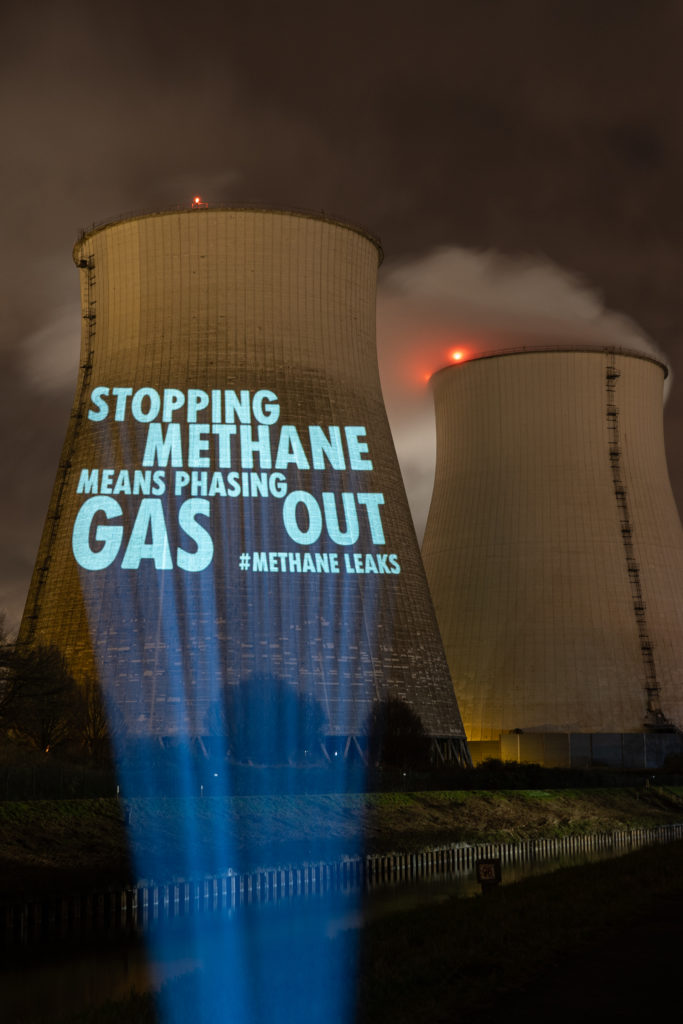Prominent activists, hundreds of groups urge U.N. to champion a global ban, call fracking a climate and human rights disaster
New York, NY – On the eve of international youth-led climate strikes and next week’s United Nations Climate Change Summit, nearly 460 grassroots groups, faith communities, celebrities, activists and organizations from across the world are calling on the United Nations to endorse a worldwide ban on fracking.
Actors Mark Ruffalo, Emma Thompson and Amber Heard, authors and activists Naomi Klein, Bill McKibben, Karenna Gore and Wenonah Hauter, fashion icons Vivienne Westwood and Joe Corré, human rights lawyer Jennifer Robinson, iconic childrens’ singer Raffi, climate experts Dr. Robert Howarth and Dr. Sandra Steingraber, and nearly 460 grassroots groups sent an open letter to U.N. Secretary General Antonio Guterres stating that the “continued production, trade and use of fracked hydrocarbons for energy, petrochemicals and plastics torpedoes our global efforts to tackle climate change and violates basic human rights.”
The letter was organized by the American advocacy organization Food & Water Action (FWA) and its European arm, Food & Water Europe (FWE), as well as the Breathe Project, a Pittsburgh-based clearinghouse for information on air quality in Pennsylvania.
Wenonah Hauter, founder and executive director of Food & Water Action and Food & Water Europe, said: “In more than a decade of fighting fracking in the U.S., we’ve banned it in multiple states and made great progress elevating the issue globally. But there is much more work to do. The fracking surge in the U.S. has been a boon for the polluting petrochemical industry, which turns fracked gas into plastics. Our planet and our oceans are drowning in plastic and fracking companies are profiting. This needs to stop once and for all. We need a global ban on fracking.”
Banning fracking has been an urgent priority of climate activists for years. But it has recently moved onto the political stage as a key issue in the U.S. Democratic presidential race, with many top-tier candidates embracing the urgent call for a total ban.
“The climate emergency is a casting call for heroes, and we need everyone to show up. Step one is to stand up and say, loudly and clearly, that there is no place for fracking on a climate-destabilized planet,” said actor and longtime fracking activist Mark Ruffalo.
“Every well and every pipeline adds more methane and carbon dioxide to the atmosphere and pushes us closer to the edge of the climate cliff. The science demands, and our children demand, a global ban on fracking,” said actress and U.N. Human Rights Champion Amber Heard.
The signatories to the letter — including the Break Free From Plastic Movement, Friends of the Earth, Concerned Health Professionals of New York, European Environmental Bureau, Oil Change International, Heinrich-Böll-Foundation, Greenpeace Australia Pacific, Alianza Mexicana contra el Fracking, Support Centre for Land Change South Africa, Frack Free United, SumOfUs, Women Engage for a Common Future — point to the overwhelming scientific documenting the significant negative climate impacts of fossil gas and the environmental and disastrous public health implications of fracking.
“Fracking sounds nearly as ugly as it actually is. For the sake of the climate we need this obscenity to end right now!” said renowned author and 350.org founder Bill McKibben.
The letter also draws a direct line between fracking and the global plastic pollution crisis. As Food & Water Watch recently documented, a substantial amount of the gas drilling and related infrastructure being proposed is intended to use cheap fracked hydrocarbons to make plastic.
“Over the past decade, methane levels have been rising rapidly in the atmosphere, contributing significantly to the unprecedented global climate disruption seen in recent years,” said Cornell Professor of Ecology and Environmental Biology Robert Howarth, whose research on methane leaks has shed considerable light on the climate impacts of fracking. “Over 60 percent of the increased global methane emissions are from the oil and gas industry, and shale gas development in North America is responsible for one-third of the increased emissions from all sources. Fracking for shale gas is a climate disaster.”
A number of United Nations bodies have weighed in over the years on the dangers of fracking. The Committee on Economic, Social and Cultural Rights (CESR) and the Committee on the Elimination of Discrimination Against Women (CEDAW) have expressed concerns regarding the threat fracking represents for achieving the climate targets under the Paris Agreement and its impacts on human rights. And as early as 2012, the U.N. Environment Programme (UNEP) issued a “Global Alert” on fracking, concluding that it may have adverse environmental impacts even if done properly
As fashion icon Vivienne Westwood and environmental campaigner Joe Corré said: “Because fracking causes birth defects, in March 2019, the United Nations Committee on the Elimination of Discrimination Against Women (CEDAW) took the harmful environmental and climate change impacts of fracking seriously enough to strongly urge the British Government to completely ban fracking. It speaks for itself that this highly respected U.N. body saw this legislative measure as the only solution to protect the human rights of women in rural areas in Britain”.
“A decade ago, when there were only nine scientific studies on the impacts of fracking, some political leaders suggested that fracking might serve as a bridge to a stable climate. Now there are 1,800 studies, and the science is clear. Fracking is making the climate crisis worse,” said Sandra Steingraber, PhD, biologist, co-founder of Concerned Health Professionals of New York. “Fracking is destroying drinking water and undermining human rights around the world. Fracking is harming health through toxic air pollution and supporting a polluting plastics industry that is killing our oceans. Our planet is on fire, but fracking is not an evacuation bridge nor a fire extinguisher. Fracking is an arsonist that needs to be stopped everywhere and right now.”
Prominent actress and activist Emma Thompson said: “Fracking is the fossil fuel world’s worst idea to date. It’s pointless, expensive, doesn’t create jobs that will serve a community, but it does pollute, damage and contribute to wrecking the climate. Its poisonous presence in our green and pleasant land is an affront to common sense, common health and the safety of the planet as a whole.”
“The climate crisis is the greatest ever threat to human rights. As the recent UN report on climate change and poverty makes clear, fossil fuel companies are the main driver of climate change and over-reliance on profit-driven actors in mitigating this crisis will almost guarantee massive human rights violations,” said human rights lawyer and barrister with Doughty Chamber Streets Jennifer Robinson. “What we really need is a global ban.”
The letter concludes by referring to the final advisory opinion of the Permanent People’s Tribunal (PPT) on Human Rights, Fracking and Climate Change, which recommended that fracking be banned, and that “the Special Rapporteur on Human Rights and the Environment be asked to investigate the violations of the rights of humans and nature by the Unconventional Oil and Gas Extraction industry.”
Open Letter
Contacts:
Andy Gheorghiu, Food & Water Europe: [email protected], 0049 160 20 30 974
Peter Hart, Food & Water Action: [email protected], 732-839-0871




